Hyperuricemia: Improve Your Diet to Reduce Uric Acid Levels
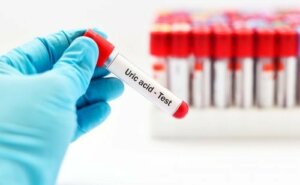

Written and verified by the nutritionist Eliana Delgado Villanueva
High uric acid problems are directly related to a bad diet since the purines that produce it are mainly in what we eat. For this reason, in this article, we’re going to propose food that will help you to treat hyperuricemia and improve high uric acid levels.
It’s also true that, inside our body, levels of this acid also appear without external help. However, under normal conditions, 80% of uric acid levels can be controlled by following certain diets.
What is hyperuricemia, or high uric acid?

Hyperuricemia is an elevated amount of uric acid in the blood. The most feared symptom of this disease is gout, which occurs when uric acid is deposited in the joints. Gout causes extremely intense pain, and you should avoid this at all costs.
With a good died guided by a nutritionist, it’s possible to diminish the levels of uric acid in the blood. It’s also possible to control the situation better and prevent potential gout attacks.
What is an elevated uric acid level?
According to health specialists, the correct uric acid levels are between 2.4 and 5.7 mg/dl in women, and between 3.4 and 7.0 mg/dl in men.
Therefore, experts consider any value that exceeds these limits as an indicator of hyperuricemia. They must treat it in time before the condition worsens.
What foods should I eat if I have hyperuricemia?
In our diet, we must reduce foods that are rich in purines. This is because, when they degrade in the body, they can cause hyperuricemia. Fortunately, some foods can help lower uric acid if you consume them regularly.
Foods low in purines
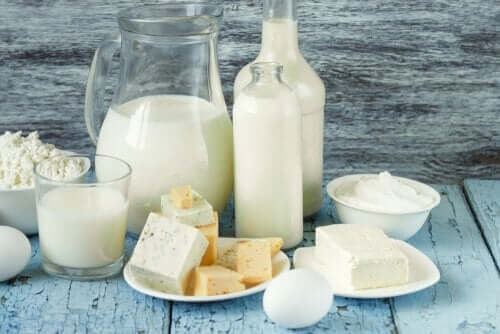
There are foods with low concentrations of purines in their composition and we can include them in our diet without experiencing any problems. These include:
- Dairy products
- Vegetables (except for some mentioned below)
- Roots and tubers
- Fruits rich in vitamin C
- Unsalted nuts
We must pay attention to all food because they all contain purines to a greater or lesser extent. However, with proper planning, we can achieve great results in urine tests.
Foods with medium purine content
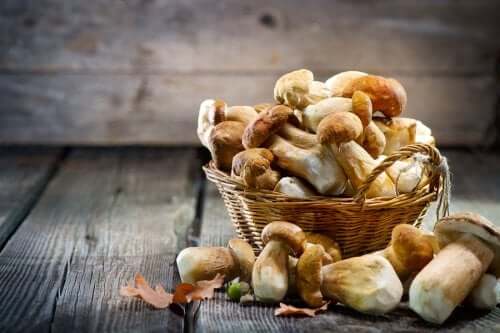
We then have food with a lower concentration of purines, and you can be more flexible in comparison with the previous list. These foods are:
- White meats
- Mushrooms and asparagus
- Vegetables: except beans and lentils
- Cauliflower
- Spinach
You can include these items in your diet, but their consumption should never be excessive.
Read also: Six Herbal Teas to Lower Uric Acid Levels
What food should you avoid if you have hyperuricemia?
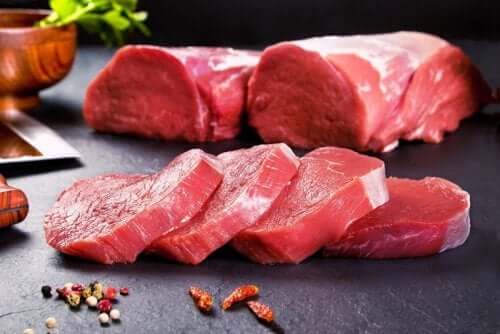
You should limit animal fats and food rich in purines. Among these, we can highlight viscera, concentrated broths, sauces, and soups made with pieces of meat. Also, fish help – primarily bluefish like sardines, anchovies, red mullet, prawns, or mackerel.
The consumption of alcohol and processed products isn’t recommended to lower the levels of uric acid in the body or to prevent it from rising. Because of this, it’s better to eliminate them or limit their consumption.
Aspects to take into account when you have hyperuricemia
Fruit consumption
In the case of fruit, we must control our intake well because, on the one hand, they’re very good for us as they have low purine content. However, on the other hand, they are very high in fructose, which our body uses to produce purines.
Cooking methods
When you have hyperuricemia, cooking methods can also be important. Boiling food reduces the number of purines in the food. A boiled or cooked dish is a better option than fried or cooked dishes with large amounts of oil, for example.
Drinks
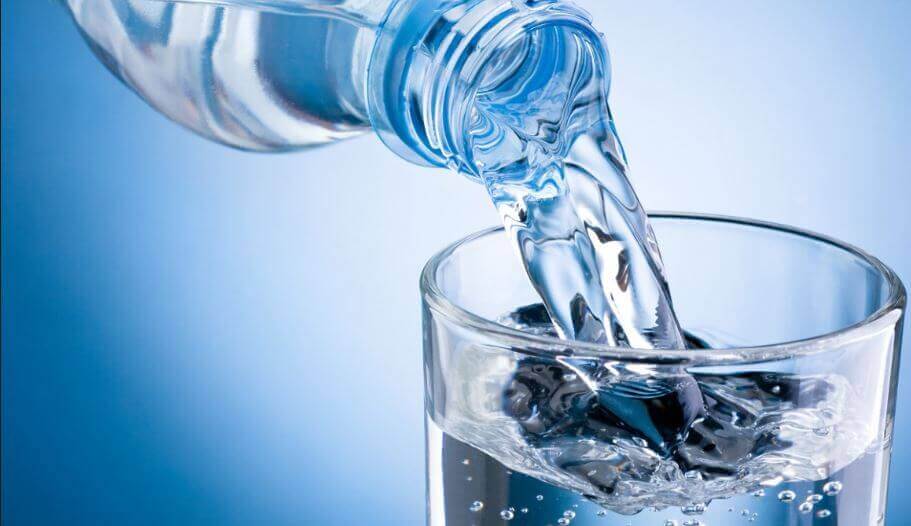
The drink par excellence that we must drink regularly is water. We must increase our water consumption if it isn’t enough. Try to drink at least 2 liters of water a day, as indicated in most health recommendations.
If you have a diet rich in fruit and vegetables, in addition to broths, soups, or infusions, then you’re also including water naturally into our diet.
Although these tips can help you lower your hyperuricemia levels, it’s important that you consult your doctor. They will carry out an evaluation and will prescribe the most appropriate treatment for your condition.
All cited sources were thoroughly reviewed by our team to ensure their quality, reliability, currency, and validity. The bibliography of this article was considered reliable and of academic or scientific accuracy.
- Escudero, C., Bertoglia, P., Muñoz, F., & Roberts, J. M. (2013). Purinas y ácido úrico en pre-eclampsia: interacciones fisiopatológicas y proyecciones en investigación. Revista médica de Chile, 141(7), 895-902.
- Contreras Roura, J. (2012). Errores innatos del metabolismo de las purinas y otras enfermedades relacionadas. Revista Cubana de Pediatría, 84(2), 197-200.
- Álvarez-Lario, B., & Alonso-Valdivielso, J. L. (2014). Hiperuricemia y gota: el papel de la dieta. Nutricion hospitalaria, 29(4), 760-770.
- Menéndez, E., Milano, C., Alassia, F., Carreras, R., Casonú, M., Cipres, M., … & Elbert, A. E. (2016). Nutrición e hiperuricemia. Revista de Nefrología, Diálisis y Trasplante, 36(4), 246-252.
This text is provided for informational purposes only and does not replace consultation with a professional. If in doubt, consult your specialist.








